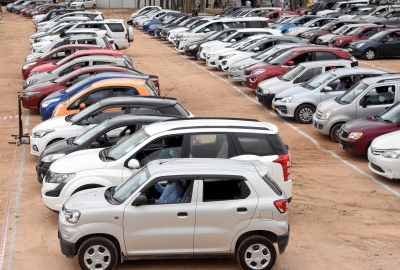Chennai: The Indian automobile industry in fiscal 2023-24 is expected to see a single digit growth after closing the FY23 with double digit growth, said Federation of Automobile Dealers Associations (FADA).
As the high-growth period has now passed, FY’24 is expected to see tapered growth in the low single digits due to a high base, inflationary pressures, routine price hikes, and regulatory changes, FADA said.
Additionally, for the third consecutive month, US Government agencies have warned of the possibility of El NiAo’s arrival later this year, which could lead to poor monsoons, hampering rural India’s growth potential.
According to FADE, the untimely rains and hailstorms in North and Central India have destroyed key rabi crops and delayed harvesting, which will have a negative impact on rural sales. The year will also witness high electric vehicle (EV) penetration which will eat into the internal combustion engine (ICE) market share.
“Overall, FY’24 will be a year of consolidation for the India Auto Retail Industry with an overall single digit growth over previous year,” FADA said.
Looking back at the fiscal that went by FADA President, Manish Raj Singhania said, “FY23 was the first full year without any impact of Covid after a gap of two years. Consequently, overall retail sales during the year experienced double-digit growth of 21 per cent. Similarly, all categories except for tractors saw double-digit growth, with two-wheelers, three-wheelers, passenger vehicles, and commercial vehicles growing by 19 per cent, 84 per cent, 23 per cent, and 33 per cent, respectively. Tractors, however, only grew by 8 per cent.”
The two-wheeler segment fell to seven years low with total retails of 15.9 million during the year. EV penetration in this category during the year was at 4.5 per cent.
The three-wheeler category maintained its impressive growth rate of 84 per cent year over year. Electrification in this category reached 52 per cent, primarily driven by the e-rickshaw segment. The availability of finance, along with the availability of alternative fuels and state subsidies, has contributed to the growth of this segment.
Singhania said the retail sales of passenger vehicles reached a record high of 3.6 million vehicles, growing 23 per cent YoY. The previous high was in FY’19 when retail sales were 3.2 million vehicles.
While the high end variants helped to sustain sales, the entry-level variant remains under pressure as customers in this category are still affected by high inflation, Singhania said.
–IANS


Comments are closed.